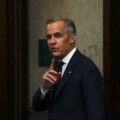It’s become something of a tradition at The Hub to use the summer to zoom out a bit from day-to-day current affairs and public policy in order to focus on the ideas and arguments that underpin the country’s political life.
I’ve written in recent weeks about the state of conservative ideas and politics across the Anglosphere, including the rise in the United States of a fissure between “freedom conservatives” who can be broadly defined as classical liberals and libertarians and “national conservatives” who involve some combination of social conservatives, cultural conservatives, and post-liberals.
I’ve been grateful for the generally positive reaction to my commentary—even among those who may disagree with conservatism but are interested in understanding the dynamics within the intellectual and political movement.
The main criticism has come from some conservatives who’ve taken exception to my description of the Canadian conservative project as essentially a small “l” liberal one. That is to say, as Friedrich Hayek wrote in his famous essay, “Why I’m not a conservative”, North American conservatism distinguishes itself from conservatism in Europe and elsewhere by virtue of the fact that the ideas, institutions, and norms that it’s trying to conserve are themselves liberal.
Yes, of course, there’s the famous “Tory touch” embedded in Canada’s founding ideas and institutions. The Peace, Order, and Good Government ethos of the British North America Act involved a modified liberalism. I’ve written in various places for instance about the idea of “ordered liberty” which reflects the amalgam of conservatism and liberalism at the heart of Confederation. But the whole project—including the constitution—was shot through with the era’s liberal ideas.
That doesn’t mean of course that contemporary critics of liberalism don’t have compelling arguments. I’d encourage readers to listen to my recent podcast episode with University of Notre Dame philosopher Patrick Deneen whose 2018 book, Why Liberalism Failed, received wide acclaim for his penetrating critique of the limits and failings of modern liberalism. But the notion that the dominant philosophical underpinnings of Canadian society haven’t been small “l” liberalism frankly strikes me as ahistorical and of limited utility for thinking about the future.
Where my commentary probably does deserve some pushback however is my tendency to over-universalize the Canadian conservative tradition and failure to distinguish between the conservatism of English Canada and Québec.
The province’s unique cultural identity and preservationist project has caused Québec society to never fully embrace liberalism. It stands to reason therefore that its conservatives haven’t sought to preserve the liberal order so as much as Québec’s own culture and institutions including its customs, language, and political norms. In that sense, there’s a case that the historic notion of the “two solitudes” between English Canada and Québec extends to conservatism itself. There’s a risk, then, especially for commentators like me, to neglect the unique particularities of Québec conservatism when thinking and talking about a single conception of Canadian conservatism.
Even if one disagrees with aspects of the province’s cultural conservatism, it seems to me that it’s crucial for understanding Canadian conservatism in general and Canadian culture and politics more generally. In that vein, I was grateful to recently exchange with high-profile Québec conservative intellectual Mathieu Bock-Côté.
For English Canadians unfamiliar with Bock-Côté and his ideas and writings, he may be the most important Canadian intellectual that you don’t know. Not only does he capture so much of the zeitgeist of Québec’s resurgent cultural nationalism, but his opinions are influential with Québec politicians at the highest level. In 2019, for instance, Québec Premier Francois Legault caused some buzz when he said Bock-Côté’s book, L’empire du politiquement correct (The Empire of Political Correctness), was on his summer reading list.
Because of the inherent differences between English Canadian and Québec conservatism discussed above, Bock-Côté’s ideas and arguments may be somewhat unusual to The Hub’s readers. His focus on culture and identity rather than the more materialistic appeals of English Canadian conservatism may even produce a bit of a reaction. But it’s important to have a sense of where he and other leading Québec intellectuals stand on these issues if we’re to have a better understanding of the politics of the country.
What makes Bock-Côté so interesting though is that his influence doesn’t stop at the Québec border. In recent years, he’s emerged as an increasingly prominent right-wing voice in France, where he replaced former presidential candidate, Éric Zemmour, in a key broadcasting slot on the country’s major right-wing news network.

As Globe and Mail columnist Konrad Yakabuski observed in a long-form essay on the state of Québec cultural nationalism earlier this summer, Bock-Côté has reached such a profile in the French-speaking world that his “writings on immigration, language and identity have spawned a cottage industry among intellectuals on the Québec left, who have dedicated essays and books to challenging his ideas.”
Which, I suppose, brings me back to my initial point. Critics of my characterization of Canadian conservatism as essentially about conserving classical liberal ideas and values wish, in some way, that they had their own Bock-Côté in English Canada. They’re drawn to a more assertive conservatism that focuses less on tax rates or the size of government and more on defending a particular conception of Canadian culture. They’d prefer, in short, if the prevailing conservative orthodoxy was less mine and more his.
I’m skeptical about how much his arguments would prevail in parts of English Canada which in a way reinforces the durability of the two solitudes. As we discuss in our exchange, it may be that a pan-Canadian conservatism cannot exist. At their core, the English Canadian and Québec conservative projects are ultimately motivated by divergent—and even competing—understandings of their aims and purposes.
I won’t aim to solve such a big question here but it does reinforce that even if one disagrees with Bock-Côté’s ideas, you cannot afford to ignore them. For that reason, The Hub, which aspires to facilitate dialogue and debate across ideology, language, or region, is pleased to publish our interview.
Recommended for You

Scott Staring: Canadian nationalism is committed to the public good

Eric Lombardi: Our politicians want you to forget about Canada’s biggest socioeconomic challenge. Yes, it’s still housing

‘We are seeing division’: Rudyard Griffiths and Sean Speer on the Epstein files scandal dividing Trump’s coalition

Trump’s Epstein files controversy has revealed a rift in the MAGA coalition




